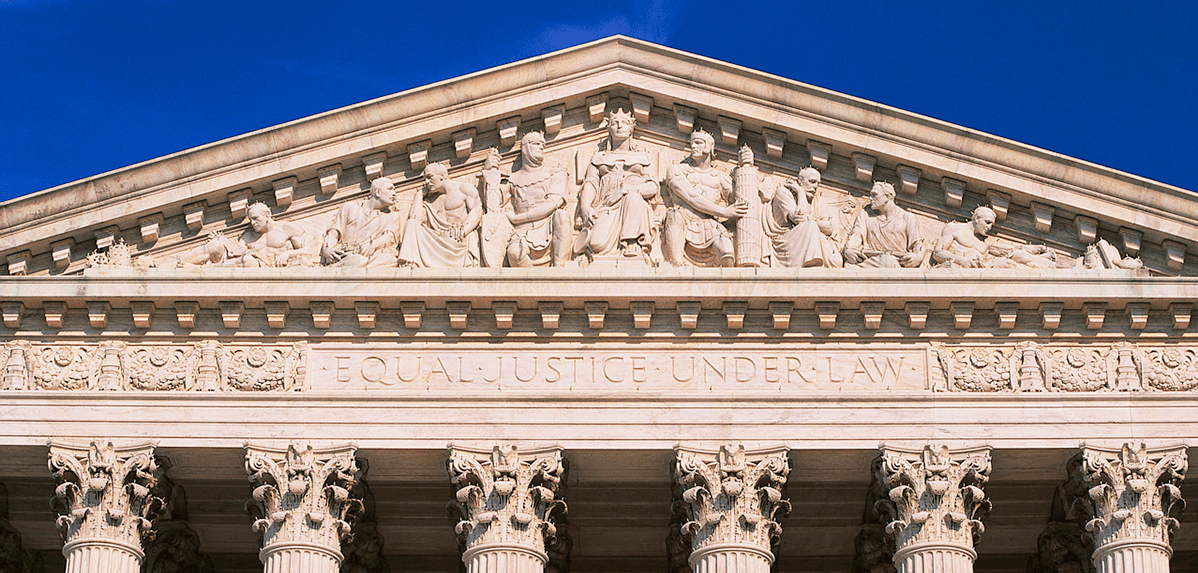Most people agree that it’s inappropriate for an eighth grader to be drinking alcohol. What happens, however, when middle schoolers get caught? Do you know that your child could be arrested, strip searched, and thrown into jail?
Last month, the Sixth Circuit Court of Appeals (Kentucky, Michigan, Ohio, Tennessee) held that this kind of law enforcement activity is acceptable and does not violate the Constitution. I think this is outrageous. Here is why I think the Sixth Circuit got it wrong:
On June 2, 2009, police officers in Hazard, Kentucky, received a report of underage drinking at a private residence. T.S., et al. v. Doe et al., Case No. 12-5724, (6th Cir. 2014). Officers responded and discovered a group of minors celebrating their recent eighth grade graduation. The officers decided to breathalyze each of the children and discovered that seven of them, including J.S. and K.S., tested positive for alcohol. Each of the seven were arrested and escorted to the police station. Parents were notified and arrived at approximately 4:00 a.m.. The children remained at the station for the rest of the morning, except for a trip to the hospital where they were required to have their blood drawn.
Eventually, a court-designated social worker arrived at the station. The father of both J.S. and K.S. asked the worker to release his children to his custody. After speaking with the judge, the worker refused to release the children who were held overnight for a court appearance the next day. The children were transported thirty miles to a juvenile detention center. Once J.S. and K.S. arrived at the center, they were subjected to routine intake procedures, including fingerprinting, mug shots, and metal-detection screening.
What makes this case alarming—aside from the fact that two middle school students were arrested and required to spend a night in jail—is that the children were required to undergo a hygiene inspection and health screening which included a something called a “Body ID/Showering Process.”
This required the eighth graders to completely undress for a so-called “visual inspection;” a strip search which lasted for several minutes. After the strip search, J.S. and K.S. were placed in a cellblock with the other five children.
Both children were released to their parents the following morning and the underage drinking charges were eventually dropped.
On February 5, 2014, the United States Courts of Appeals for the Sixth Circuit upheld this shocking treatment in T.S. v. John Doe, Case No. 12-5724 (6 Cir. 2014). The Sixth Circuit’s decision, however, is contrary to Supreme Court precedent.
Before the district court below decided this case, the Supreme Court issued its decision in Florence v. Board of Chosen Freeholders of the County of Burlington, 132 S.Ct. 1510 (2012). The parties in T.S. v. John Doe briefed the court on the constitutionality of the searches in light of the decision in Florence. After reviewing the briefs, the district court granted partial summary judgment in favor of the plaintiffs. The district court, however, found Florence irrelevant and held that Masters v. Crouch, 872 F.2d 1248 (6th Cir. 1989) was dispositive.
The defendants appealed the district court’s decision. Apparently relying on Florence and other precedent, the Sixth Circuit granted the defendants’ summary judgment claim. The Court held that “no clearly established principle of constitutional law—not then and certainly not now—forbids a juvenile detention center from implementing a generally applicable, suspicionless strip-search policy upon intake into the facility.”
This is where the Court got it wrong: strip searching two eighth grade students for underage drinking is clearly alarming and not permissible under Supreme Court precedent.
In Safford Unified School Dist. No. 1 v. Redding, 557 U.S. 364 (2009), the Supreme Court recognized the unique intrusiveness of a strip search of a minor. In Redding—which is discussed on ChildLaw here—the Supreme Court found that a strip search of a 13-year-old girl by the school nurse because of a rumor that she had ibuprofen and naproxen violated the Constitution.
In Redding, the Supreme Court found that there was no reason to believe that the student was hiding medication under her clothing. The Court stated, “…adolescent vulnerability intensifies the patent intrusiveness of the exposure.” Further, the Court cited the Amicus Curiae brief of the National Association of Social Workers, which explained that a “strip search can ‘result in serious emotional damage.’” Additionally, the Court found that strip searches of minors are “…fairly understood as so degrading that a number of communities have decided that strip searches in schools are never reasonable and have banned them no matter what the facts may be.”
While strip searching a minor in a juvenile detention facility is not the same thing as a strip search in a school, it is similarly outrageous and unwarranted under the circumstances in T.S. v. John Doe. That the Sixth Circuit upheld such conduct is alarming for both children and parents.
Unlike the Sixth Circuit’s holding, it is unlikely that the Supreme Court would uphold as constitutional the suspicionless strip search of minors being held for underage drinking who were never integrated into the general prison population. As the Supreme Court declared in Florence, “this case does not require the Court to rule on the type of searches that would be reasonable in instances where, for example, a detainee will be held without assignment to the general jail population and without substantial contact with other detainees.”
There were four dissenting justices in Florence, and out of the five justices that joined the majority, two filed concurring opinions.
Both Justices Roberts and Alito filed concurrences which insisted that the Court’s majority opinion did not foreclose the possibility of an exception to the rule it announced. Justice Roberts stated “[t]he Court is nonetheless wise to leave open the possibility of exceptions, to ensure that we ‘not embarrass the future.’” Justice Roberts further declared that the majority holding should be limited to the circumstances of the case. Supporting his conclusion was the fact that “Florence was detained not for a minor traffic offense, pursuant to a warrant for his arrest, and that there was apparently no alternative, if Florence were to be detained, to holding him in the general jail population.”
Justice Alito, in his concurring opinion, professed that “the Court does not hold that it is always reasonable to conduct a full strip search of an arrestee whose detention has not been reviewed by a judicial officer and who could be held in available facilities apart from the general population.” He explained that “most of those arrested for minor offenses are not dangerous, and most are released from custody prior to or at the time of their initial appearance before the magistrate.” Further, he opined that “[f]or these persons, admission to the general jail population, with the concomitant humiliation of a strip search, may not be reasonable, particularly if an alternative is available.”
Justice Alito specifically stated that “the Court does not address whether it is always reasonable, without regard to the offense or the reason for detention, to strip search an arrestee before the arrestee’s detention has been reviewed by a judicial officer.”
Based on this, it is unlikely that Supreme Court review of this case would result in a ratification of the Sixth Circuit’s ill-advised decision. Here’s why:
- the children in T.S. v. John Doe were young
- they were arrested for the relatively minor crime of underage drinking in a private home
- there were no allegations or suspicion of violence or contraband
- the children were held separately from the rest of the juvenile detention center population
- the children did not have the opportunity to see a judicial officer prior to the strip search
- the children were released to their parents the next day and the charges were dropped
For a minor offense, these children were subjected to a humiliating strip search that they will remember for the rest of their lives.
As the Supreme Court recognized, strip searching minors can result in serious emotional damage. There was absolutely no reason to require these children to strip naked. It was unnecessary, unreasonable, and violated the Constitution.



Leave a Reply